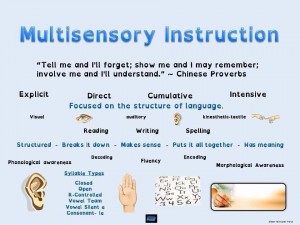Frequently Asked Questions
- Lack of phonemic awareness, isolating sounds in words, rhyming and sequencing of sounds in syllables;
- Delayed processing skills or slowed retrieval skills;
- Difficulty decoding words — single work identification;
- Problems with reading comprehension;
- Reversals of letters and/or numbers in words (e.g. e-d, sing-sign, left-felt, soiled-solid, 12-21);
- Difficulty in expressing thoughts verbally.
How much do your services cost? In creating the Children’s Dyslexia Centers, Inc., it has been our mission to provide professional tutoring free of charge to children with dyslexia/learning disabilities. Services are made available to children on a first-come, first-served basis. We are also committed to increasing public awareness of dyslexia as well as improving the standards of care through research and education. And, we provide free training to qualified individuals to become Orton-Gillingham tutors. Since 1994, thousands of children have received free specialized instruction a the Children’s Dyslexia Centers, one of which is located in Collinsville, Illinois.
How do you help children succeed? We work with 1st through 12th grade students who are experiencing learning difficulties in the areas of reading, spelling, written language and related areas. We provide a service for students with learning disabilities at no cost. Our professional staff members are certified in specialized techniques and work one-on-one with students. Instruction is individualized to meet each student’s needs, and every student receives two 50-minute sessions per week.

How do you teach children with dyslexia? Our centers use the Orton-Gillingham method of reading instruction developed by Dr. Samual T. Orton and educator Anna Gillingham. The Orton-Gillingham method uses visual, auditory and kinesthetic modalities. The multi-sensory instruction begins by focusing on the individual sounds represented by letters and explicitly teaches the blending of sounds into words. The core of the method is teaching the saying with the writing of the sounds used in spoken English. The cumulative and sequential Orton-Gillingham program continues to build in complexity but always provides students with immediate feedback, repetition and integration of reading, writing and spelling. The instruction is intensive, one-on-one, emotionally sound, language based and success oriented.
Is my child dyslexic? What might the symptoms be? When a child struggles with reading, writing, spelling, and sometimes even speaking, it is possible that the problem is due to dyslexia. The common signs listed below do not necessarily mean that a child displaying them has this learning disability. However, if a child continues to display difficulty over time in the areas listed below, testing for dyslexia should be considered.
• Understanding that words are made up of sounds
• Assigning correct sounds to letters
• Correct pronunciation of sounds and words
• Spelling
• Learning basic sequential information (alphabet, numbers)
• Reading with age-appropriate speed, accuracy and comprehension
• Learning numbers, facts
• Answering open-ended questions (math or word problems)
• Organizing thoughts, time, or a sequence of tasks
The required areas of assessment for admission to our program are as follows:
- An individualized, standardized assessment of Cognitive Ability/IQ [less than 3 years old]
- An individualized, standardized assessment of Achievement [less than 2 years old]
- With examiner’s credentials and narrative report attached
Cognitive Ability/IQ Assessments (Preferably the most current edition)
- Wechsler Intelligence Scale
- Woodcock-Johnson Test of Cognitive Ability
- Stanford-Binet Intelligence Scale
- Kaufman Assessment Battery for Children
Scores are required in verbal, perceptual reasoning, working memory, processing speed, and a full scale score.
Achievement Assessments (Preferably the most current edition)
- Woodcock Johnson Test of Achievement
- Wechsler Individual Achievement Test
- Woodcock Reading Mastery Test
- Wide Range Achievement Test
Scores are required in reading real words, passage comprehension, and spelling. Other helpful scores include: fluency and nonsense words.
Optional:
- Most recent IEP, only if it includes test data
- Visual processing
- Phonological Processing
- Short-term auditory/working memory
- Mathematics
- Visual-motor integration
Informal screenings or progress monitoring.